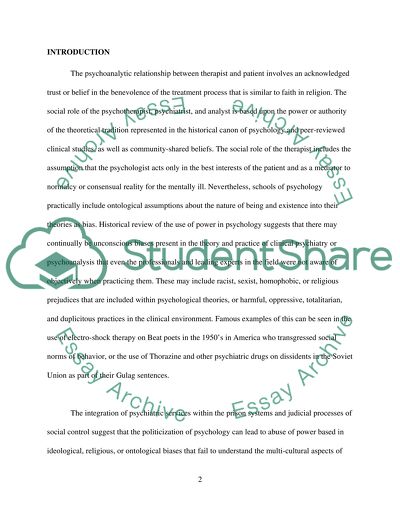Cite this document
(“Power and the shadow: the role of power in psychotherapy Essay”, n.d.)
Retrieved from https://studentshare.org/psychology/1429669-power-and-the-shadow-the-role-of-power-in
Retrieved from https://studentshare.org/psychology/1429669-power-and-the-shadow-the-role-of-power-in
(Power and the Shadow: The Role of Power in Psychotherapy Essay)
https://studentshare.org/psychology/1429669-power-and-the-shadow-the-role-of-power-in.
https://studentshare.org/psychology/1429669-power-and-the-shadow-the-role-of-power-in.
“Power and the Shadow: The Role of Power in Psychotherapy Essay”, n.d. https://studentshare.org/psychology/1429669-power-and-the-shadow-the-role-of-power-in.


